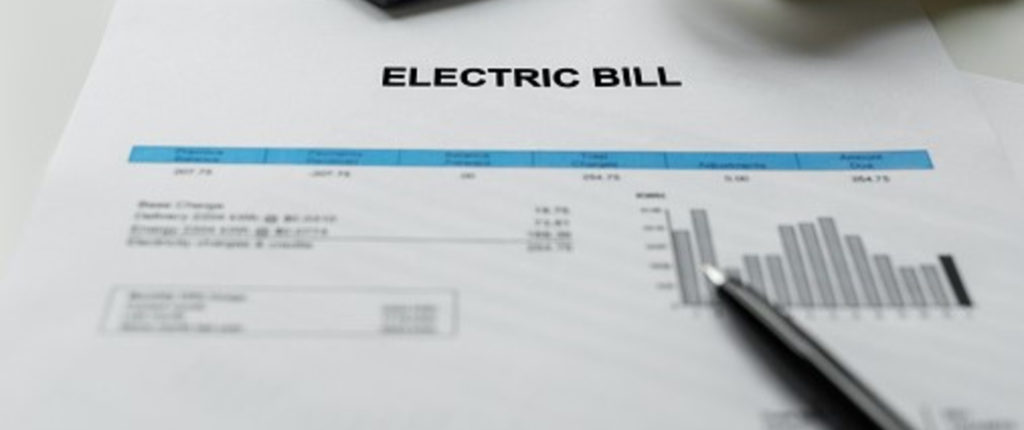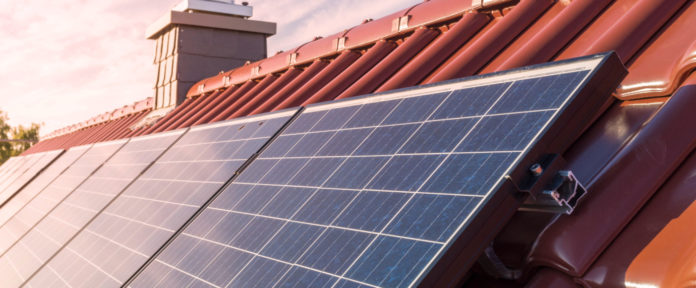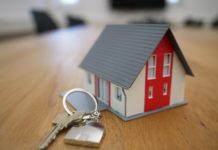Are you considering going green and making a positive impact on the environment? One way to do this is to go solar by installing solar panels in your home or business. With solar panel installation, you can harness the power of the sun to generate your electricity.
But before you take the leap, it’s important to understand the pros and cons of this decision. Here, we’ll explore the benefits and drawbacks of solar panel installation so you can make an informed choice and confidently go green.
Read on!
Pros of Solar Panel Installation
Solar panels have become very popular over the past few years. They have become so for very good reasons, with homeowners and business owners alike experiencing many benefits. Here, we share with you some of the pros of solar panel installation for your home.
Reduced Energy Bills

One of the significant benefits of putting solar panels on your home or building is the potential for reduced energy bills. Solar energy systems allow you to generate your electricity from the sun. This means you don’t have to rely only on traditional energy sources which can be costly.
When you generate your electricity, you use less energy from the grid, which can translate into a lot of savings over time. In some cases, you may even be able to sell excess energy back to the grid, further reducing your energy bills.
The exact amount of savings will depend on different and various factors. This includes factors such as your location, the size of your solar system, and your energy usage. This is why many people see a noticeable reduction in their energy costs after installing solar panels.
With reduced energy bills, you can save money in the long run. And, you are doing so while also reducing your carbon footprint. Finally, keep in mind that you are also making a positive impact on the environment.
Increased Home Value
Another advantage of solar panel installation is the potential to increase the value of your home. Having solar panels installed by professionals linked here can be seen as a valuable upgrade to potential buyers.
This is because it offers long-term savings on energy bills and a clean energy source. Moreover, homes with solar panels are often viewed as eco-friendly and sustainable. This can be an attractive feature to buyers who are more conscious when it comes to caring for the environment.
So, make sure to invest in solar panel installation. In doing so, you not only enjoy the benefits of renewable energy. But, you can also help increase the resale value of your home when you put it on the market.
Environmental Benefits

One of the most significant pros of solar panel installation is the environmental benefits it provides. Solar energy is a clean and renewable energy source. It produces no harmful emissions. These factors contribute to making it an option that is more friendly to the environment.
By using solar panels to generate electricity, you reduce your carbon footprint and help to combat climate change. Additionally, solar power reduces the demand for non-renewable energy sources. This includes old and traditional energy sources such as coal and oil.
These are all major contributors to greenhouse gas emissions and air pollution. By reducing your reliance on these energy sources, you can help to reduce your impact on the environment. And, you can also do your part in promoting a cleaner, healthier planet.
Solar energy also helps to conserve water resources. This is because traditional power plants need vast amounts of water for cooling and other processes. With solar panel installation, you can enjoy the benefits of clean, sustainable energy. All while making a positive impact on the environment.
Energy Independence
Another advantage of solar panel installation is the potential for energy independence. By using solar panels for your energy, you can lessen your dependence on traditional energy sources. such as coal or natural gas. This can be especially beneficial during power outages or emergencies.
In such events, the grid that most people are reliant on may be unavailable. With solar panels, you have access to a reliable and self-sufficient energy source that can power your home or business. Additionally, solar energy systems have no moving parts.
And, it only needs minimal maintenance compared to other energy sources. This makes them a dependable and low-maintenance energy source. Moreover, the solar panel technology continues to improve and become more efficient.
Thus, the potential for energy independence only increases. So, make sure to invest in solar panel installation if you can. By doing so, you can take control of your energy needs and enjoy the benefits of reliable, sustainable energy for years to come.
Tax Breaks and Incentives
When considering solar panel installation, it’s important to note the potential to save more money. Things such as tax breaks and incentives can help to offset the initial cost. Many states and municipalities offer incentives and tax credits.
This is done to encourage homeowners and businesses to switch to solar energy. These incentives can include state and federal tax credits, rebates, and property tax exemptions. Some utility companies also offer net metering programs.
These programs allow homeowners to sell excess solar energy back to the grid. And, by doing so, they can receive credits on their energy bills. These incentives can reduce the upfront cost of solar panel installation by a lot. And, in the end, it becomes a more affordable option for many people.
Moreover, investing in solar panel installation can also lead to long-term cost savings on energy bills. So, if you are planning on having solar panels installed, take advantage of tax breaks and incentives. In doing so, you can enjoy the benefits of renewable energy while also reducing your costs.
Cons of Having Solar Panels Put Up
Despite its popularity, solar panels are still not perfect. This means it might still not be for everyone yet, as the technology continues to improve. So, since solar panels are not perfect, here are some of the drawbacks that you can expect when exploring solar panels.
High Upfront Cost of Installation
One of the main drawbacks of solar panel installation is the high upfront cost. Solar energy can indeed provide long-term financial benefits. The initial investment can be expensive, and thus, makes it more of a luxury to have. Its price can vary depending on different factors.
Some of the most common ones include the size of the system and the complexity of the installation. So, despite being something that can help save you money in the long run, the price might be too heavy for some to even consider investing in it. Having solar panels is still a luxury.
And, it is a luxury that, unfortunately, not everyone can enjoy. It is still more common and more practical financially to be connected to the grid. This is especially true for families that are still starting.
This is something that can still be considered in the future by families. And, prices are now lowering. But, given that installation costs can be steep, it might be best to just save up for the meantime and wait it out. Until you can afford to let go of that much money, you’re better off with the grid for now.
Limited Functionality in Cloudy Weather
While solar energy is a clean and renewable source of energy, it does have some limitations. One of the drawbacks of solar panel installation is that it can be less effective in cloudy weather. Solar panels work by converting sunlight into electricity.
This means they are most efficient on sunny days. In cloudy weather, the amount of energy produced by solar panels can be less than what it normally is. So, try to consider where you currently live and stay. Check if it is an area that is mostly dominated by rainy, cloudy, or even snowy days.
If you live in areas that also have a lot of weather disruptions and turbulence, it might be unwise to invest in solar panels. You might end up using up all the electricity that you have saved up on those sunnier days. And if the weather problems persist, you might not have that much power.
So, even if this can provide you with cleaner power, solar panels might not be a wise investment for areas with bad weather. Although there have been advancements to its technology, it is still powered by solar energy. Which, if you don’t have that much access, will be a problem for your home.
Difficult and Long Installation Process
Installing the solar panels can be a complex and time-consuming process. Some homeowners may find the installation process difficult or overwhelming. This is especially true if your home has a unique or complicated roof design or if you’re not familiar with electrical work.
In some cases, professional installation may be required, which can add to the cost of the system. And, even though professional installation may be required, the technology is not yet as old as the traditional sources of power. This means knowledge is still adapting to new and old homes alike.
It might also make things more difficult if you live in a home that has a lot of nuisances like pests. If, say, you live in areas that have a lot of raccoons and other pests that can invade your roof, this can complicate things. The installer might end up taking a lot of time to secure your solar panel system.
So, it is very important to check how long this will take. And, ask yourself if you have the patience to wait it out in case the installation takes too long.
Space Requirements on Roof or Property
One potential drawback of installing solar panels is the amount of space required on your roof or property. Solar panels need to be installed in a location where they can receive the most sunlight. This often means installing them on your roof.
If your roof is small or already crowded with other fixtures, it may be difficult to find a suitable location for your solar panels. Installing a set of solar panels on your property also requires a significant amount of open space. This can be hard if you have a small yard or live in an urban area.
Suitability Issues for Some Homes and Structures

While solar panels can be a great option for many homeowners, they may not be suitable for all homes. Factors such as roof angle, shading, and the orientation of your home can all impact the effectiveness of your solar panels.
For example, if your roof faces north, it may not be able to generate as much energy as a south-facing roof. Also, if tall trees or buildings are blocking the sun from reaching your roof, your solar panels may not be as effective.
Additionally, check if your roof is in poor condition or needs to be replaced in the near future. If so, then it may not be cost-effective to install solar panels until after the roof is replaced.
Before investing in solar panels, it’s important to have a professional assessment. Have them check your home’s suitability for solar. And then, consider any potential limitations that may impact the effectiveness of your solar panels.
Weigh the Pros and Cons About Installing Solar Panels
Going solar by installing solar panels has many benefits and drawbacks. It may come with a high upfront cost and need space on your roof or property. But, all the benefits make it a worthwhile investment.
Plus, with tax breaks and incentives available, going green has never been more affordable. By understanding the pros and cons of solar panel installation, you can make an informed decision that fits your unique needs and goals. So take the leap! Join the growing community of individuals who are making a positive impact on the environment.
All while enjoying the benefits of renewable energy. Visit our blog today!








































